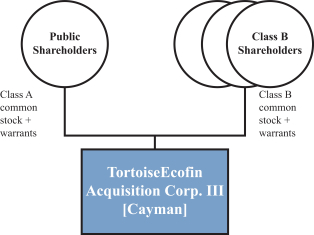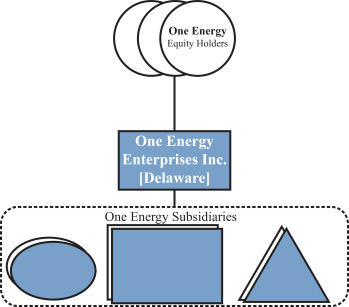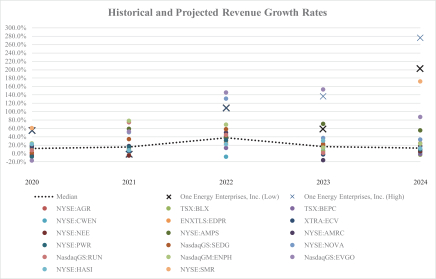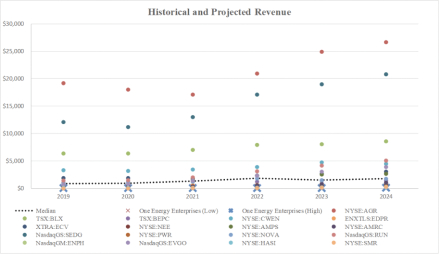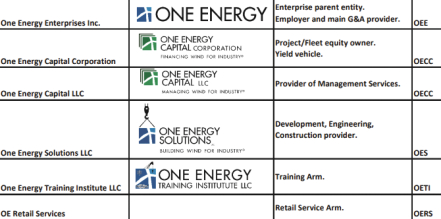financing more difficult, more costly and more dilutive. These developments, or the perception that any of them could occur, may restrict the ability of key market participants to operate in certain financial markets or restrict our access to capital.
Our ability to generate energy depends on the reliability and lifespan of its equipment, and equipment failure or deterioration could disrupt energy production, increase costs, and negatively impact its financial performance.
Our ability to generate energy from our wind and solar projects depends on the reliability and lifespan of our equipment. There is a risk that our equipment may fail or deteriorate faster than expected. This could be due to manufacturing defects, wear and tear, adverse weather conditions, or other factors. Equipment failure or deterioration could disrupt our energy production, increase our maintenance costs, which could negatively impact our financial performance or damage our reputation and our relationships with our customers.
Our ability to generate revenue and achieve profitability depends on timely project development, and any delays could increase costs, delay revenue generation, and negatively impact its financial performance.
Our ability to generate revenue and achieve profitability depends on our ability to develop our wind and solar projects on schedule. However, project development can be subject to a variety of delays. These delays can be due to permitting issues, supply chain disruptions, construction challenges, adverse weather conditions, or other factors. If our projects are delayed, it could increase our costs, delay our revenue generation, and negatively impact our financial performance, which could also damage our reputation and our relationships with our customers and partners among other impacts.
Our operations and physical assets are exposed to the risk of increasingly severe weather events due to climate change, potentially causing significant damage to physical assets, substantial repair and replacement costs, operational disruptions, decreased energy production, revenue loss, impact on local power grids and transportation infrastructure, and delays or interruptions in projects.
Our operations and physical assets are exposed to the risk of increasingly severe weather events, which are becoming more frequent and intense due to climate change. These events, including hurricanes, floods, wildfires, and extreme temperatures, could cause significant damage to our physical assets, such as our wind turbines, solar panels, and other infrastructure. This could result in substantial repair and replacement costs, and could disrupt our operations, leading to decreased energy production and revenue loss. Furthermore, severe weather events could also impact the regions where our assets are located, affecting local power grids and transportation infrastructure, and potentially leading to delays or interruptions in our projects. While we have measures in place to mitigate these risks, including insurance coverage and emergency response plans, there can be no assurance that these measures will be sufficient to prevent or fully offset the potential damage and financial impact of severe weather events. If we are unable to manage these risks effectively, it could negatively impact our business, financial condition, and results of operations.
Engineering mistakes could lead to system failures, safety incidents, project delays, and increased costs.
Our operations involve complex engineering tasks related to the design, installation, and maintenance of wind and solar energy systems and power infrastructure. Despite our best efforts to ensure the highest standards of engineering, there is a risk of engineering mistakes. These could be due to human error, technical failures, or unforeseen complications. Engineering mistakes could lead to system failures, safety incidents, delays in project completion, damage or injury to persons or property, or increased costs due to rework or repairs. Any of these outcomes could negatively impact our reputation, financial performance, and customer relationships.
Delays in interconnecting our energy systems to the grid could lead to operational disruptions and financial losses.
Interconnecting our energy systems to the grid is a critical part of our operations. However, this process involves coordination with utilities and regulatory authorities and can be subject to delays. These delays could be due to a
111
